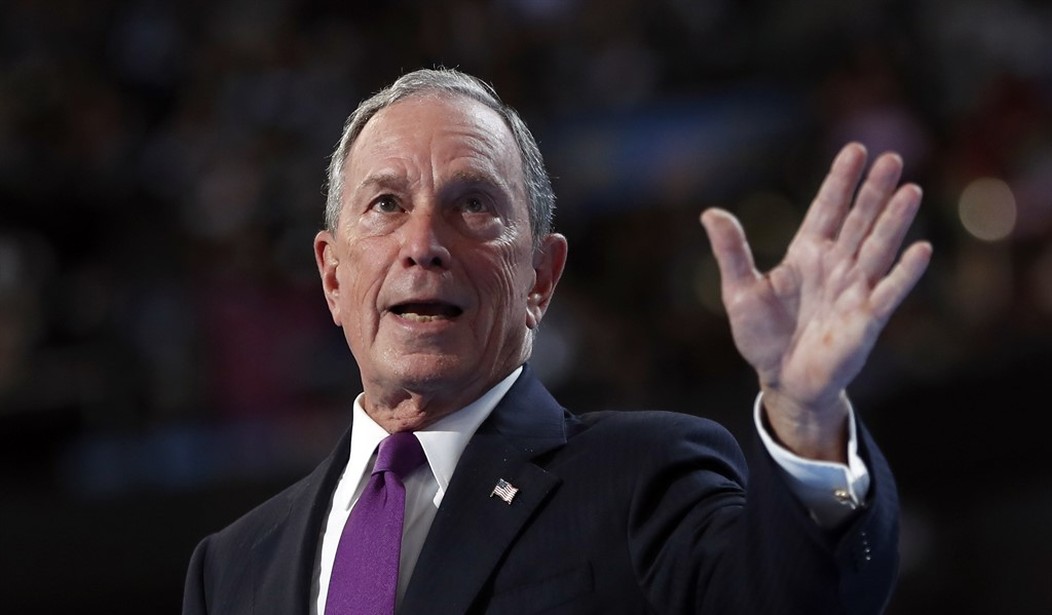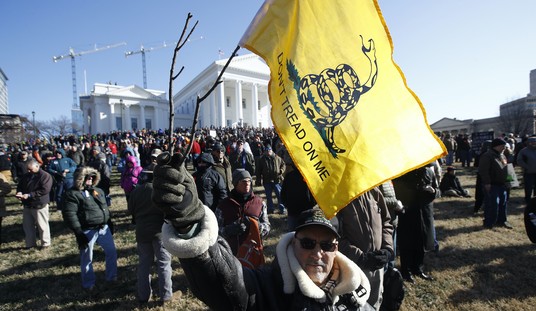The billionaire businessman, who has switched parties several times throughout his political career, endorsed George W. Bush’s 2004 reelection campaign, contributed to John McCain and even held a fundraiser for a House GOP member as recently as last year.
And that’s not all. Beneficiaries of his largesse include former Sen. Orrin Hatch (R-Utah), a vigorous Trump defender, and Senate Appropriations Chairman Richard Shelby of Alabama, who once chaired the Senate Banking Committee.
Then there’s former Sen. Scott Brown (R-Mass.). Bloomberg endorsed and held a fundraiser for Brown when he ran against Elizabeth Warren in 2012.
“As a Democratic candidate for president, he makes an excellent Republican donor,” quipped Pennsylvania Democratic Lt. Gov. John Fetterman, who has not yet endorsed anyone in the primary.
Bernie Sanders is also an unorthodox Democrat, but he mostly gets a pass because he’s a socialist, not a Wall Street billionaire.
Interestingly enough, some of the criticism leveled at Bloomberg is directed at his gun control group’s support for a few Republican candidates over the years. In Pennsylvania, for example, Everytown backed the re-election bid of Senator Pat Toomey, who’s worked with Democrat Joe Manchin on background check legislation. While it was important for gun control advocates to support Republicans who backed gun control, some Democrats in the battleground state of Pennsylvania don’t see it that way.
“In my opinion, it disqualifies Bloomberg as a Democratic presidential candidate,” said Mike Mikus, a Democratic strategist who helped lead Katie McGinty’s U.S. Senate campaign against Toomey in 2016. “He basically invested heavily in making sure Mitch McConnell stayed Senate Majority Leader.”
Who would have thought that Michael Bloomberg’s gun control efforts would end up hurting him among the Democrat’s base? Then again, even many members of the Bloomberg-funded Moms Demand Action aren’t enthused about his campaign, as Buzzfeed recently pointed out.
“We don’t need another business person in office,” said Rhonda Hart, 38, a volunteer with Moms Demand Action in Texas and an Everytown Survivor Fellow, which means she went through a sort of leadership training program. Hart’s daughter, Kimberly Vaughan, died in the Santa Fe High School shooting in May 2018, after a student opened fire in her art class and killed 10 people.
“While he’s our largest donor, it doesn’t mean he is the organization himself,” said Alanna Miller, 19, the Students Demand Action volunteer leader at Duke University and a member of the organization’s national advisory board. “He’s just like any other candidate.”
Granted, it’s only been a couple of days since Bloomberg officially announced his campaign, but this can’t be the reception that he was hoping for. We haven’t seen any polling conducted (that I’m aware of anyway) since his announcement on Sunday, but a poll conducted over the weekend had Bloomberg at a whopping 2% and in a tight grouping of candidates that include fellow billionaire Tom Steyer, Tulsi Gabbard, Minnesota Senator Amy Klobuchar, and New Jersey Senator Cory Booker. That was before his nationwide ad blitz started appearing on computer monitors and TV screens, so it’ll be interesting to see what, if any, kind of polling bounce $31 million in advertising buys you.
My guess is that Bloomberg will get a modest boost in the polls, but the real key is whether or not he can draw support away from Joe Biden and Pete Buttigieg. Elizabeth Warren and Bernie Sanders fans aren’t going to embrace the guy who made billions on Wall Street, but those looking for a “moderate” (I’m sorry, I can’t not use air quotes when describing either Biden or Buttigieg as moderate) might find the former mayor of New York City a little more appearing than the mayor of South Bend, Indiana, and perhaps a little sharper than the former vice president has seemed on the campaign trail and debate stage.
Biden’s lead in the Real Clear Politics average has been holding steady at about ten points for the last month or so, while Buttigieg has been gaining slightly in the polls as Elizabeth Warren has slid down a few percentage points. Maybe there’s a large pool of Biden supporters who are looking for a candidate that doesn’t remind them of a kid riding a bike without training wheels for the first time, but up to this point, he’s proved to be fairly resilient with a base of support that hovers around 30% of primary voters.
As for Buttigieg, the biggest advantage he has over Bloomberg is that he’s far more likable. I disagree with about 90% of what comes out of Pete Buttigieg’s mouth on a debate stage, but I could probably have a beer with him and talk politics. Not only does Bloomberg seem like the kind of guy to chastise me for having a beer, he’d probably want to measure the size of the glass and perhaps even have me thrown up against the wall and frisked by his security team before sitting down at a table with me.
Now, it’s also possible that Bloomberg could pull votes from some of the other lower tier candidates. A point here from Booker, a point there from Klobuchar and Harris, and maybe three points from Biden’s lead, and all of a sudden Bloomberg’s in a tie with Buttigieg at 8% of the vote. It wouldn’t catapult Bloomberg to the status of front runner, but it would certainly put him in the top tier of candidates or just outside of it, though he’d still need to draw many more Biden supporters if he’s going to overtake Warren and Sanders in the polls.
Keep your eyes on the poll numbers over the next week or so, and don’t just look to see if Bloomberg’s gaining any ground. Look to see where he’s pulling it from as well. If he’s successful in drawing voters away from Biden, it’s a sign that his campaign may have legs. If he’s gaining votes as the expense of the candidates polling at one or two percent, on the other hand, Bloomberg may have a hard time breaking into the top tier, no matter how much money he spends.









